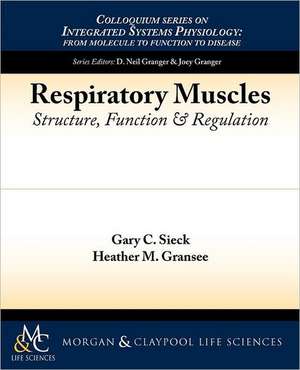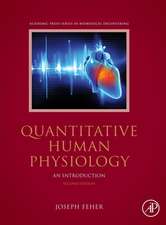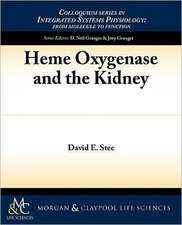Respiratory Muscles: Colloquium Series on Integrated Systems Physiology, from Mol
Autor Gary C. Sieck, Heather M. Granseeen Limba Engleză Paperback – 24 mai 2012
Preț: 264.47 lei
Preț vechi: 278.40 lei
-5% Nou
Puncte Express: 397
Preț estimativ în valută:
50.61€ • 52.65$ • 41.78£
50.61€ • 52.65$ • 41.78£
Carte tipărită la comandă
Livrare economică 14-28 aprilie
Preluare comenzi: 021 569.72.76
Specificații
ISBN-13: 9781615043842
ISBN-10: 1615043845
Pagini: 94
Dimensiuni: 191 x 235 x 5 mm
Greutate: 0.18 kg
Editura: Morgan & Claypool
Seria Colloquium Series on Integrated Systems Physiology, from Mol
ISBN-10: 1615043845
Pagini: 94
Dimensiuni: 191 x 235 x 5 mm
Greutate: 0.18 kg
Editura: Morgan & Claypool
Seria Colloquium Series on Integrated Systems Physiology, from Mol



















